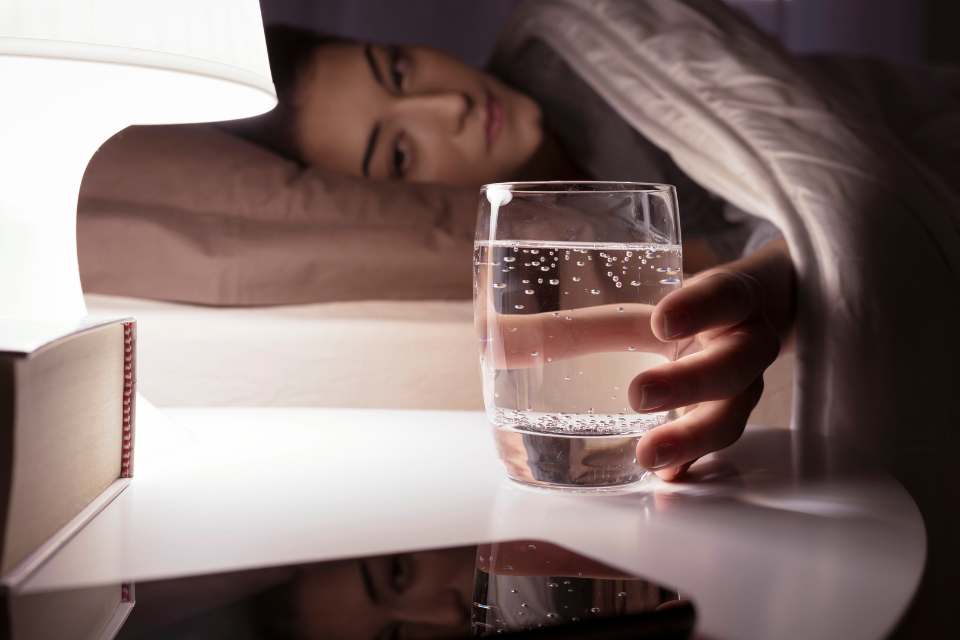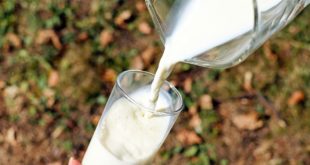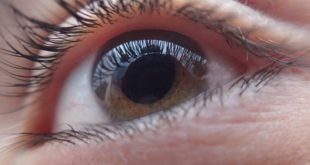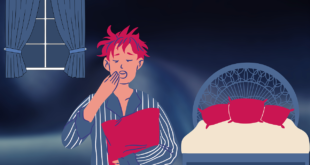
Waking up thirsty at night, also known as nocturnal thirst, can be caused by various factors. Some common reasons for experiencing nighttime thirst include:
- Dehydration: One of the most common reasons for waking up thirsty at night is dehydration. If you haven’t consumed enough fluids throughout the day, your body may become dehydrated, leading to increased thirst.
- Consumption of Salty or Spicy Foods: Eating salty or spicy foods before bedtime can lead to dehydration and increased thirst during the night.
- Dry Indoor Air: Low humidity levels in your bedroom or home can cause moisture to evaporate from your respiratory passages, leading to dryness and increased thirst.
- Medications: Some medications, such as diuretics (water pills), can increase urination and potentially lead to nighttime thirst.
- Sleep Apnea: Sleep apnea is a sleep disorder characterized by interruptions in breathing during sleep. People with sleep apnea may wake up feeling thirsty due to the disruption in their sleep patterns.
- High Blood Sugar (Hyperglycemia): Elevated blood sugar levels, often seen in conditions like diabetes, can lead to increased thirst, and this may be more noticeable at night.
- Gastroesophageal Reflux Disease (GERD): GERD can cause stomach acid to flow back into the esophagus, leading to a dry or bitter taste in the mouth, which can trigger thirst.
- Hormonal Changes: Some hormonal changes, such as those occurring during pregnancy or menopause, can lead to increased thirst at night.
- Underlying Health Conditions: Certain medical conditions, like kidney disease or thyroid disorders, can affect fluid balance and may result in increased thirst.
If you frequently wake up thirsty at night, it’s essential to identify the underlying cause and address it appropriately. Here are some steps you can take:
- Stay Hydrated: Ensure you drink an adequate amount of water throughout the day to prevent dehydration. However, avoid excessive fluid intake close to bedtime to minimize nighttime awakenings.
- Limit Salty and Spicy Foods: Reduce your consumption of salty and spicy foods, especially in the evening.
- Use a Humidifier: If dry indoor air is a problem, using a humidifier in your bedroom can help maintain moisture levels and reduce nighttime thirst.
- Monitor Medications: If you suspect that medications are causing your nighttime thirst, consult with your healthcare provider to discuss potential alternatives or adjustments to your medication regimen.
- Manage Underlying Health Conditions: If you have an underlying medical condition contributing to your nighttime thirst, work closely with your healthcare provider to manage and treat the condition effectively.
- Consider Sleep Apnea: If you suspect sleep apnea may be a cause, consult with a healthcare professional for a sleep evaluation and appropriate treatment options.
If waking up thirsty at night persists or is accompanied by other concerning symptoms, it’s crucial to seek advice from a healthcare provider to rule out any underlying medical issues and receive appropriate guidance on maintaining good sleep hygiene and hydration.
 Daryeel Magazine
Daryeel Magazine




